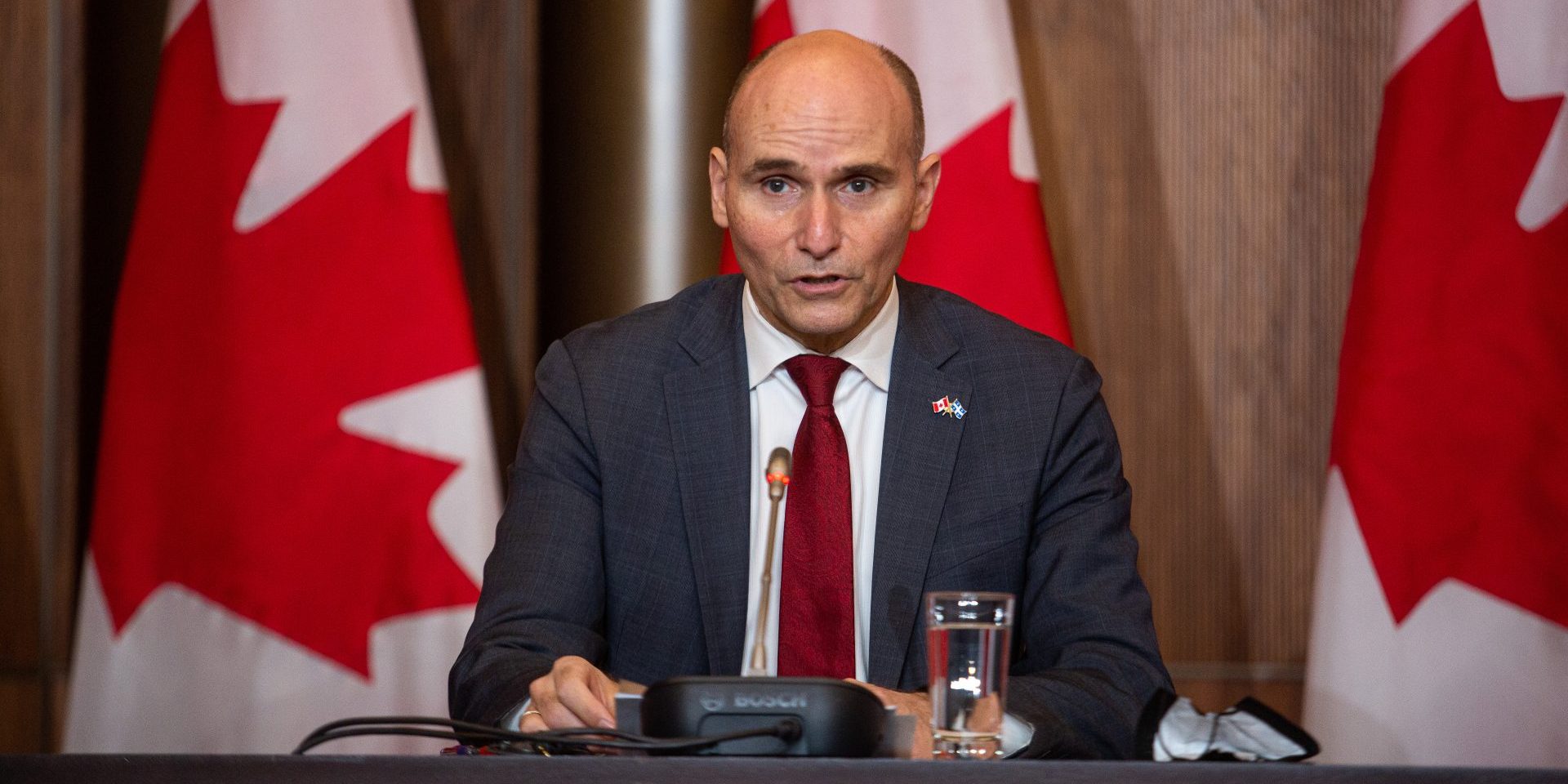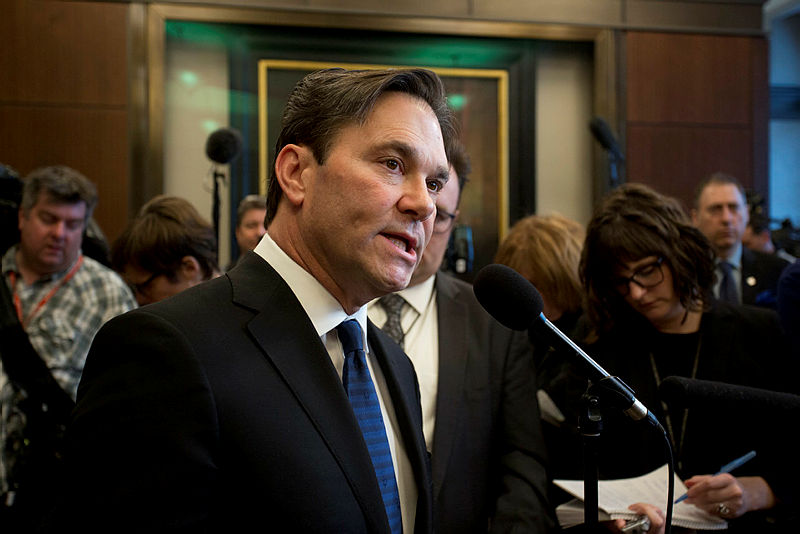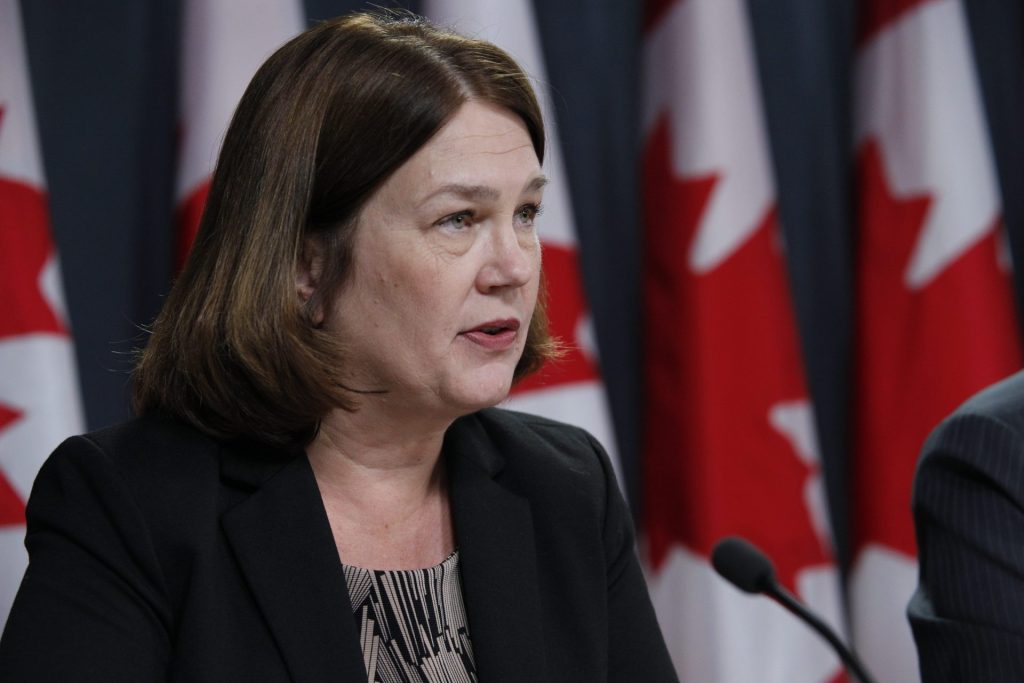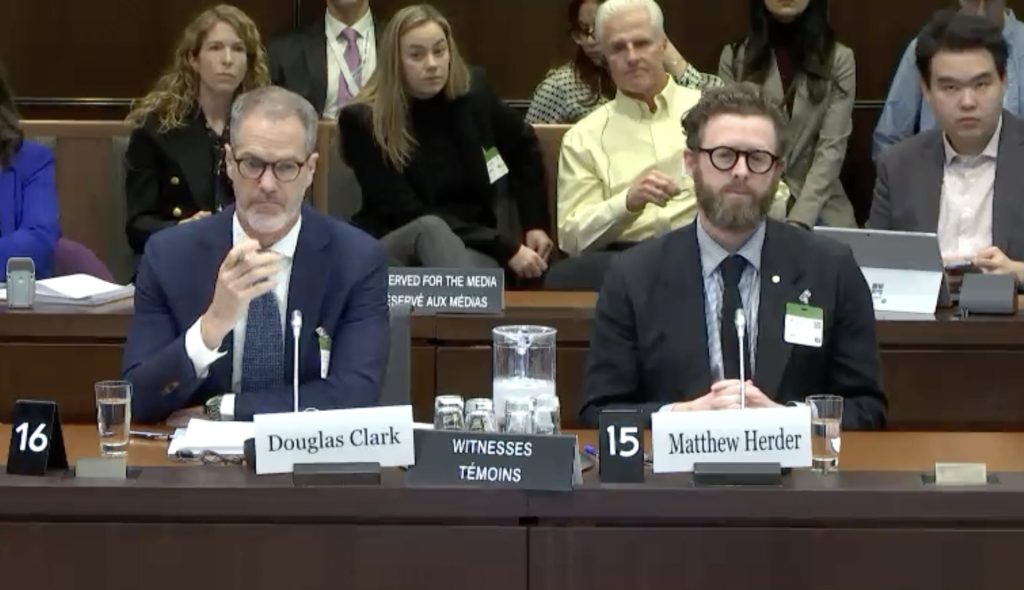Health Committee tries to cut through contradictions and confusion over reforms to drug prices regulator

Recent testimony at the House Health Committee by the health minister and former members of an organization that regulates drug prices in Canada has left members grappling with “two thoroughly contradictory versions of events,” says NDP MP Don Davies.
As part of the committee’s ongoing study of a controversy regarding the Patented Medicines Prices Review Board (PMPRB)—which regulates the prices of patented drugs in Canada—Health Minister Jean-Yves Duclos (Québec, Que.) appeared at the Health Committee on April 27, followed on May 2 by Matthew Herder, a former board member, and Douglas Clark, the outgoing executive director of the PMPRB. Herder resigned from the board on Feb. 20 and Clark announced his plans to depart on Feb. 24.
Herder, who is the director of the Health Law Institute at Dalhousie University, has said Duclos interfered with the board’s independence by asking it to suspend consultations on draft guidelines to implement the government’s own reforms to the PMPRB, after Duclos declined to meet with the PMPRB about those draft guidelines. In contrast, Duclos told the committee he had not received a request to meet.
“The minister’s story is unraveling faster than a ball of yarn in a litter of kittens,” said Davies (Vancouver Kingsway, B.C.), in an interview with The Hill Times.

The events that led to the contrasting witness testimonies began as early as 2017, when then-Liberal health minister Jane Philpott announced a plan to bring in three reforms to the PMPRB in an effort to lower drug prices in Canada, which studies have found to be the third highest list prices of any country in the world, after the United States and Switzerland. Two of those reforms have since been struck down by courts in Quebec over issues of constitutional jurisdiction, leaving only one of the original three in place.
That reform proposed to change to the “basket of comparator countries” that the PMPRB uses to assess what constitutes excessive drug pricing. By expanding the list of comparator countries from seven to 11, and dropping the United States and Switzerland entirely, it seeks to have a lower comparison point for determining excessive pricing.

No legislative changes were made to the Patent Act to implement the reform. Instead, it was brought in through a standing order in July 2022, which also requires the PMPRB to set new guidelines for its implementation. The process for setting those guidelines has been the source of the controversy that led to the contrasting accounts heard at committee.
Some aspects of the new guidelines proposed by the PMPRB that drew pushback from the pharmaceutical industry include a provision that the PMPRB could instigate an investigation into a drug price without a formal complaint being filed.
In its official statement of position on the draft guidelines, Innovative Medicines Canada, the national lobby group representing Canada’s brand-name drug companies, said: “these changes inappropriately empower PMPRB staff to develop product-specific pricing policies in an untransparent manner, while preventing [patent] rights holders from determining likely compliance requirements in advance of making decisions for a given patented medicine such as whether or not to launch a patented medicine in Canada.”

John Adams, a senior fellow at the Macdonald-Laurier Institute and chair of the Best Medicines Coalition—a alliance of patient advocacy groups—said he was not comfortable with the PMPRB having those powers, calling the organization “a rogue regulator that has gotten out of control.” Adams said, in his view, the draft guidelines were an attempt to resuscitate aspects of the reforms that the Quebec court had struck down.
However, Marc-André Gagnon, a health policy professor at the University of Ottawa, said the matter comes down to “two ways to perceive the role of the PMPRB.”
“Some people consider that the PMPRB has to provide some balance,” between the issue of affordability of drug pricing for Canadians, with the issue of attracting investment from industry, said Gagnon.
However, he said, given the history of the PMPRB—which was set-up by then-prime minister Brian Mulroney’s government in 1987 in exchange for changes made to the Patent Act that were desired by the pharmaceutical industry—other stakeholders believe its sole function is to push for lower pricing.
“The PMPRB must not be balanced. The PMPRB is one part of the balance,” said Gagnon. “It was put in place when we’ve provided some privileges, basically, to drug companies. But we put in place one watchdog, and its role is to make sure that there’s not excessive pricing.”
Minister’s letter sparks controversy
The Heath Committee’s current study is examining the series of events that took place in the fall of 2022 as the consultation period for the draft guidelines was nearing its end.
According to Herder and Clark in their testimony to committee, the PMPRB reached out to try to meet with the minister about the draft guidelines. The Patent Act states the PMPRB is required to do so before issuing new guidelines.

However, a statement from Duclos’ office says the minister never received a “formal invitation” to participate in the consultation, and “he would have agreed to such an invitation,” had it been received.
With the 60-day window for consultations coming to a close, on Nov. 28, Duclos sent a letter to the PMPRB in which he said, “Many stakeholders have raised concerns and questions associated with the new guidelines, and are looking for more information about the potential impacts.”
He went on to say, “based on these considerations, I respectfully ask that the Board consider pausing the consultation process.”
In December, the PMPRB announced that it would not implement the proposed new guidelines on Jan. 1, 2023, as planned. The change to the basket of comparator countries remains in effect under a set of interim guidelines until further notice.
With the proposed new guidelines left on pause, Herder stated in his resignation letter, “Your ‘request’ in late November that we suspend our consultations for reasons that were largely indistinguishable in form and substance from industry talking points on the proposed guidelines undermined the board’s credibility and interfered with the exercise of a function that goes to the very heart of its expertise as an independent, arm’s-length administrative tribunal.”
‘A clear pattern’: Davies
Davies told The Hill Times he expects the Health Committee study will get to the bottom of the discrepancy because the committee has requested documentation of correspondence from both sides. The documentation has been received and will be provided to the committee members in the coming days, once translation is complete.
In the meantime, Davies said the issue speaks to “a clear pattern” that stems from a close relationship between the Liberal government and the pharmaceutical industry.
He said that while the minister did not meet with the PMPRB during the 60-day consultation period, he met numerous times with lobbyists representing pharmaceutical companies.
“It leaves me with the one inescapable conclusion,” said Davies, “which is that this government is refusing to go ahead with reforms to lower the cost of prescription medicine in Canada, because big pharma is bullying them and intimidating them, and pressuring them not to do that. And they’re caving in.”
In an email statement to The Hill Times, Guillaume Bertrand, a spokesperson for Duclos, said, “it is the minister of health’s duty to work with all actors, from patients and to the industry, to make sure Canadians have access to the medication and vaccines they need.”
He pointed to the work the federal government did with industry at the time of the outbreak of the Omicron variant of COVID-19 in December 2021 as an example of this, saying, “it is because we worked with those actors we managed to have one of the most successful vaccination campaigns in the world and save lives.”

However, some observers have pointed to the pandemic as the turning point when the federal government’s relationship with the pharmaceutical industry may have caused it to cool on its own PMPRB reforms. It has been suggested that a lack of domestic vaccine manufacturing capacity during the pandemic left the Canadian government beholden to the will of the pharmaceutical industry.
“During the pandemic, basically, it seems that the government was very prudent in not doing anything that would go against the interests of drug companies,” said Gagnon.
He noted at this time the Liberal government made the decision not to appeal the Quebec court ruling that struck down its other two PMPRB reforms to the Supreme Court.
The dates are yet to be set for further Health Committee meetings for its study of the issue, but Davies said he expects more witnesses may be called once members have reviewed the requested correspondence. He said this includes possibly asking witnesses who have attended previously to return to follow-up on their testimony based on what is found in the documents.
icampbell@hilltimes.com
The Hill Times






 LICENSING
LICENSING PODCAST
PODCAST ALERTS
ALERTS













